News
Why govs demanded further talks on tax bills – Makinde
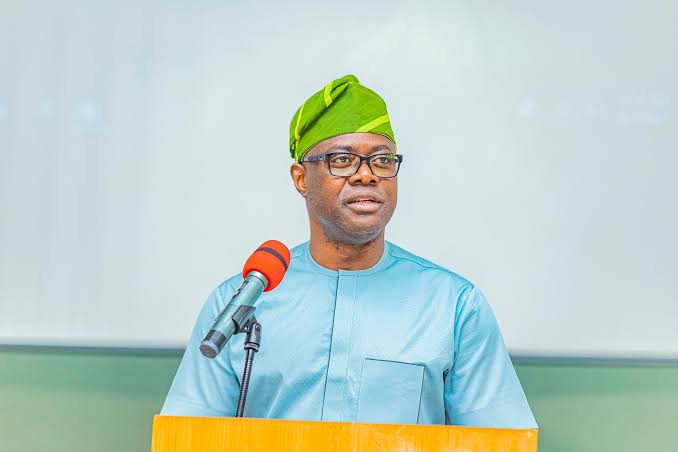
Oyo State Governor, Seyi Makinde, on Sunday, said the 36 state governors demanded wider consultation on President Bola Tinubu’s tax reform bills in order to carry the entire nation along, given the far-reaching implications of the reforms.
Makinde also clarified that he was not opposed to the tax reforms but only presented the reservations raised by the governors to the press.
In a statement issued by his Special Adviser on Media, Dr. Sulaimon Olanrewaju, Makinde made this clarification during a media chat on the Broadcasting Corporation of Oyo State on Saturday.
On October 3, 2024, President Bola Tinubu transmitted four tax reform bills to the National Assembly: the Nigeria Tax Bill, Nigeria Tax Administration Bill, Nigeria Revenue Service Establishment Bill, and Joint Revenue Board Establishment Bill.
These bills have sparked controversy, with many stakeholders opposing certain sections proposed by the government.
Makinde, who had briefed the media on the position of the National Economic Council regarding the bills, explained that the NEC unanimously agreed that the bills should be withdrawn from the National Assembly to allow for wider consultation.
“At the NEC meeting, we asked the Chairman of the Presidential Task Force about the status of the bills, and he confirmed they were already at the National Assembly,” Makinde said. “I asked, ‘If that’s the case, why are you just coming to us for approval?’ It amounted to putting the cart before the horse.”
He continued: “We agreed that the bills should be withdrawn, enabling broader consultations with stakeholders. This could lead to alignment, whether in their original form or with necessary adjustments based on stakeholder feedback.”
Addressing criticisms that he was opposed to the reforms, Makinde stated: “I was asked to explain our decision to withdraw the bills for consultation, but some people chose to focus on the messenger rather than the message.”
Makinde described the Ibadan funfair tragedy, which claimed the lives of 35 children on Wednesday, December 18, 2024, as a monumental loss.
He noted that the incident, alongside the Bodija explosion in January 2024, could have been avoided if appropriate measures had been taken.
In the Bodija explosion, five people died, 77 sustained injuries, and 58 houses were damaged.
The explosion, which occurred on Dejo Oyelese Street on January 16, was reportedly caused by explosives stored by illegal miners.
Eleven months later, 35 children died, and six others were critically injured in a crowd crush at a funfair held at Islamic High School, Basorun, Ibadan.
The funfair was organised by the foundation of Naomi Silekunola, a former queen of the Ooni of Ife.
Makinde observed a minute of silence for the victims during the media chat.
He assured the public that the legal process was ongoing, though slow.
Addressing allegations of land grabbing linked to the Circular Road project, Makinde said his administration was taking bold steps to break the limitations faced by previous governments in economic expansion.
“Some people have described me as a land grabber,” he said. “Ironically, those under investigation for land grabbing are the ones making these accusations. The Circular Road is not just another road; it will be the first motorway in Nigeria. The 32km stretch from Technical University to Badeku will have only two exit points, ensuring structured development along the corridor.”
Makinde emphasised that his government was committed to initiatives that would benefit residents, even if such decisions seem harsh in the short term.
“To break the cycle of poverty, we need to seize opportunities for lasting impact. Our state’s founding vision is one of prosperity, not poverty,” he said.
Makinde pledged a major overhaul of Oyo State’s education infrastructure in 2025, noting that his administration had consistently exceeded the United Nations Educational, Scientific, and Cultural Organization benchmark for budgetary allocation to education.
“We’ve rearranged resources to prioritise education because it’s critical to our development,” Makinde said. He acknowledged that despite significant investment, much work remains, estimating that N60 billion is needed to address the sector’s challenges.
“For tertiary institutions, we are doing well, and I am satisfied,” he added.
News
BREAKING: Unknown gunmen reportedly storm Senator Natasha’s family residence
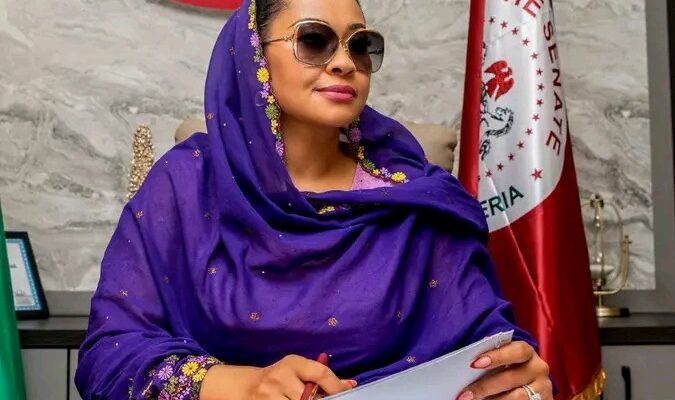
Senator Natasha Akpoti-Uduaghan’s family residence in Kogi was reportedy invaded by gunmen around 1 a.m. on Tuesday, April 16, leaving damaged windows but no injuries.
The incident happened at her hometown residence in Obeiba-Ihima, located in Okehi Local Government Area of Kogi State.
Sources familiar with the event said the attackers arrived around 1:00 a.m. Armed with cutlasses and guns, they damaged parts of the building, smashing windows and causing panic in the area. At least three men were involved in the attack.
Senator Natasha’s Chief Security Officer, Yakubu Ovanja, quickly informed the appropriate security agencies.
In response, officers from the Okehi Police Division rushed to the scene.
Although nobody was hurt and no suspects have been arrested yet, security officials recorded the extent of the damage and launched a preliminary investigation.
The reason behind the attack is still unknown, and as of now, Senator Akpoti-Uduaghan has not released any official statement. She represents Kogi Central in the Senate and is known as a vocal figure in Nigerian politics.
According to Zagazola Makama, police are still trying to figure out what motivated the attackers and are working to find those responsible.
News
SAD! Again, Alleged Herdsmen Attack Three Benue Communities

The communities came under simultaneous attacks just a day after the killing of 11 persons at Otobi Community also in Otukpo LGA.
Benue has in the past decade experienced incessant attacks.
Suspected herdsmen have again stepped up violent attacks as no fewer than three communities in the Otukpo Local Government Area (LGA) of Benue State were attacked on Wednesday.
The communities affected during the fresh attacks include Emichi, Odudaje, and Okpamaju all in Otukpo where five persons were killed in February. The communities came under simultaneous attacks just a day after the killing of 11 persons at Otobi Community also in Otukpo LGA.
Local sources confirm that several people may have been feared dead again in the fresh attack.
Wednesday’s attack came hours after Governor Hyacinth Alia confirmed the arrest of three suspected herders in connection with the invasion of Otobi village on Tuesday night.
When contacted, Otukpo LGA Chairman, Maxwell Ogiri, confirmed the attack on the three communities, saying that the attackers stormed the communities at the time when the Commissioner of Police was still at the Ochidoma Palace over the previous day’s attack on Otobi.
He added that three people sustained injury in the attacks on the three communities, leading to women and children abandoning the communities for fear of being killed.
“Only young men were in the communities when the attackers arrived. The prompt response from combined security operatives made the attackers flee and none of them were arrested,” Ogiri stated.
The police spokesperson in the state, Sewuese Anene, was yet to confirm details of the attacks on the three communities.
News
Insecurity: Obi lauds Northern Traditional Ruler’s bold steps
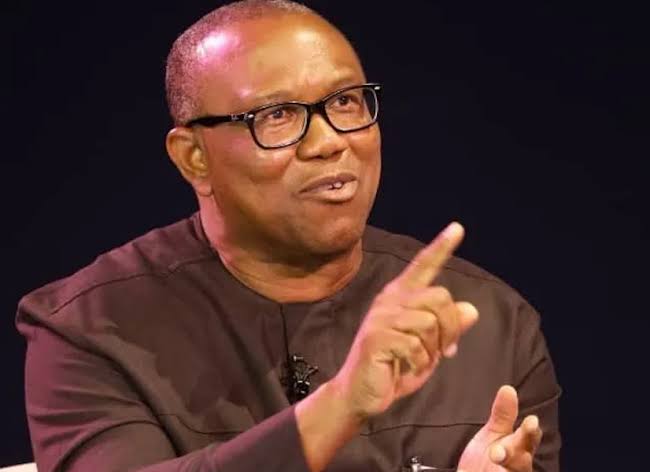
The 2023 Presidential Candidate of the Labour Party, Peter Obi has hailed the Northern Traditional Rulers for taking bold steps on the menacing security challenges in the region and in the country.
Obi, who was reacting to the ‘Enough is Enough’ declaration of the royal fathers on the security situation, said that their courageous steps are needed to find a lasting solution to the menace.
Writing on his X handle, Obi said “I would like to sincerely thank the Northern Traditional Rulers for their courageous and timely emergency declaration of the security situation in the region. I cannot agree less with them that “Enough is Enough” regarding the persistent killings and insecurity plaguing our nation.
“Their collective voice, as reported, underscores the urgent need for decisive action to protect lives and restore peace in our communities.
“I urge governments at all levels to work closely with these royal fathers who are closest to the people at the grassroots. Their commitment to addressing these challenges and offering counsel to regional governors reflects true leadership and a deep concern for the well-being of their communities.
“The stance of the Northern Traditional Rulers serves as a clarion call to all stakeholders. We must unite, irrespective of political affiliations, to implement lasting solutions that address the root causes of our nation’s challenges.
“Let us work together to build a Nigeria where every citizen feels safe, valued, and empowered.
-
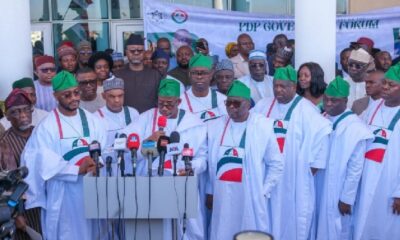
 News22 hours ago
News22 hours agoPDP governors declare support for Tinubu
-

 News23 hours ago
News23 hours agoHope for Nigerians as Dangote refinery slashes petrol price again
-

 News23 hours ago
News23 hours agoRivers Emergency Rule: Abbas inaugurates 21-member panel
-

 News22 hours ago
News22 hours agoN1.3trn CBEX Scam: EFCC caution Nigerians against Ponzi Schemes
-

 News9 hours ago
News9 hours agoFG expresses sympathy for CBEX victims, urges a united effort to combat Ponzi schemes
-

 News23 minutes ago
News23 minutes agoBREAKING: Unknown gunmen reportedly storm Senator Natasha’s family residence
-

 News3 hours ago
News3 hours agoSnub story on removal of Rivers Sole Administrator, it’s FAKE-Chief Registrar
-
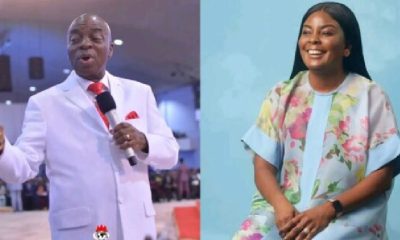
 News9 hours ago
News9 hours ago“How my father escaped assassination” – Bishop Oyedepo’s daughter

















